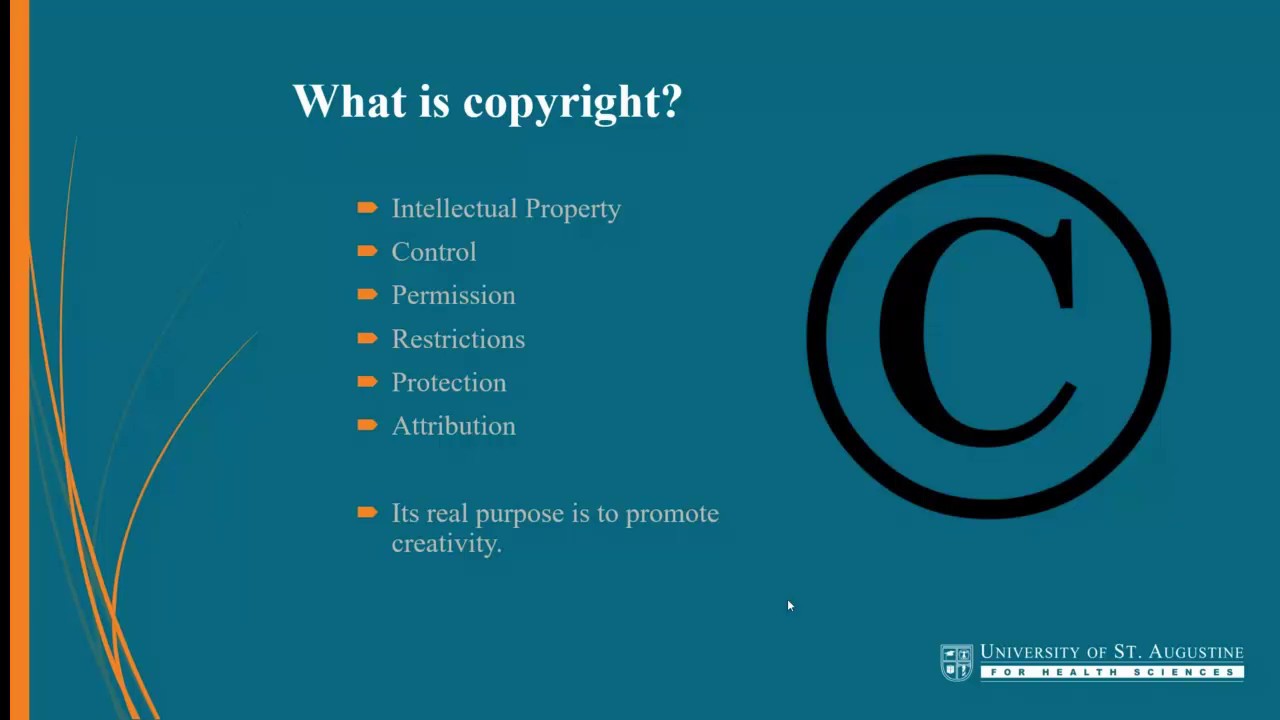Faculty Copyright Forum

# Understanding Copyright Law: A Brief Overview
## Introduction
Hi, my name is Eric Robinson, and I am the distance learning librarian for scholarly communications issues. In addition to providing online reference services, my primary focus is on copyright issues, scholarly communication, and open access. While I am fairly knowledgeable on these topics, I must clarify that I am not a lawyer, so the information I provide is not legal advice.
## What is Copyright?
Copyright is a form of intellectual property protection that aims to promote creativity by granting exclusive rights to creators. The core purpose of copyright is to allow creators to profit from their intellectual work. In the United States, copyright is enshrined in the Constitution and grants authors and inventors the exclusive right to their respective writings and discoveries for a limited period.
## Rights Secured Under Copyright Law
Under US law, creators have several exclusive rights, including the right to reproduce, distribute, perform, display, and transmit their work. They also have the right to prepare derivative works, which involve creating new works based on existing copyrighted material. While creativity is encouraged, derivative works must be distinct from the original.
## What is Protected?
Copyright protection extends to original works of authorship that exhibit unique creativity and are fixed in a tangible form. Contrary to popular belief, registration with the US Copyright Office is not required for protection. However, registration simplifies the process of asserting creative rights and proving original authorship.
## Limitations and Exceptions
Copyright law includes limitations and exceptions, particularly in the context of education and scholarship. Libraries have exceptions for preserving items, allowing for the reproduction of out-of-print materials for archival purposes. Parody, satire, and transformational use are also permitted as forms of criticism and creative expression.
## Conclusion
While copyright law aims to protect creators and promote creativity, it also recognizes the importance of limitations and exceptions for educational and transformative purposes. By understanding the principles of copyright, individuals can navigate the complex landscape of intellectual property rights with clarity and respect for creative works.
source
